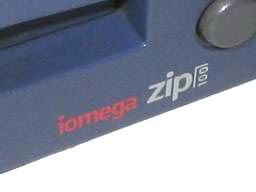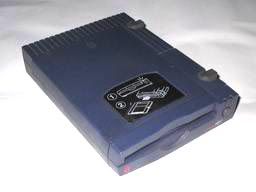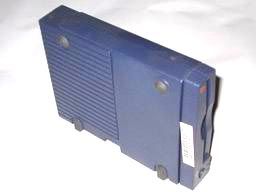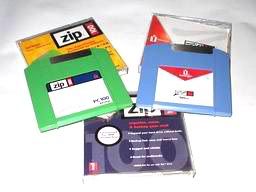The Iomega Zip Drive....
Obsoletus Instrumentum - The Iomega Zip Drive
The year was 1996. That was the year my son was born. It was also during that year that I first logged on the internet (my ISP at the time was Sky Internet) using a pathetically slow 14.4 kbps U.S. Robotics internal modem. At the time I was using a machine with a Pentium 100 processor, 32 MB of memory, a 1.08 GB hard disk, and a 4x CD-ROM drive, running Windows 95. Yeah, it seems kinda quaint by today's standards, but it was a performer during those times, consistently outrunning a friend's Pentium 133 machine which only had 16 MB of memory.
Those were the days.
Going back, as an internet newbie, and despite having an excrutiatingly slow connection, I was extremely fascinated by the ability to download, well, basically anything from the internet that wasn't too large. I ended up downloading tons of small programs, utilities, add-ons, wallpapers, desktop themes, and all sorts of knick-knacks. I remember then that my download speeds averaged about 1 MB an hour, yet I persisted. After a while, combined with the tons of programs and games that I installed on my PC, I inevitably ended up filling up my meager 1 GB hard drive.
So, what do you do when your hard drive gets full? Naturally, you have to find a way to offload some on the contents. Floppy disks were (and still are) grossly insufficient. I wasn't into CD recording yet, as CD-Writers at the time were not only slow, they were also unreliable and expensive. (I bought my CD-Writer, a Kodak branded unit, in 1998 at the cost of about P14,000.00). The only viable and affordable alternative was Iomega's Zip Drive first released in 1994. The Iomega Zip Drive I had (and still have) cost around P6,000.00 new in 1996. It interfaced with the host PC via the parallel port, and it had a pass thru port for the printer. It had its own power supply, and it used Zip Disks which could store 100 MB. It was slow, a bit tedious to install, but it was a godsend just the same.
The Iomega Zip Drive I had (and still have) cost around P6,000.00 new in 1996. It interfaced with the host PC via the parallel port, and it had a pass thru port for the printer. It had its own power supply, and it used Zip Disks which could store 100 MB. It was slow, a bit tedious to install, but it was a godsend just the same.
Compared to conventional floppies which could hold only 1.44 MB, Zip Disks could hold 70 times as much the amount of data, which made it very useful as an archiving tool. The parallel version was much too slow for applications or live data to be directly run off it, however. Iomega did offer a SCSI version of the Zip drive, for those with such requirements. As for me, I couldn't afford the extra cost of a SCSI card, and I preferred the universality of a parallel port, since every PC has one.
I found the Zip Drive so useful that when I built another computer for myself in 1999 or so, I installed an internal ATAPI version. Later on I transferred the drive to my present rig, which I built about two years ago.
It wasn't all a bed of roses for Iomega. There was the "Click of Death" issue, in which a clicking sound coming from Zip or Jaz drives upon insertion of a disk or when trying to read or write to a disk became an ominous warning that you are probably about to lose your data. Most of the defective drives have been replaced, even beyond the warranty period. I have no idea if it's still as prevalent it was before. Personally, I was lucky enough not to have been victimized by it, as both of the drives that I own are still working fine. My sister wasn't as lucky though, two of her drives have already died as a result.

The Iomega Zip Drive.
It can also be used on its side.
Assorted Zip Disks.
Granted, the Zip Drive isn't as useful as it once was, especially now when CD/DVD writers can be bought for a song and USB flash drives and flash cards with significantly more storage can found virtually everywhere. But it still has some life left in it yet, and like dot matrix printers and dial-up modems, the Zip drive seems just too useful to ever die out completely.
Iomega seems to believe so as well. The Zip 100 is still available in a USB version, and there are 250 MB and 750 MB USB, ATAPI, and FireWire versions as well.
I guess the Zip Drive isn't so obsolete after all. :-)
Earlier in this series:
The IBM CGA standard....
The 5¼" drive and floppy disk....
The Pentium and Pentium MMX....
The Sound Blaster 16....
Comments